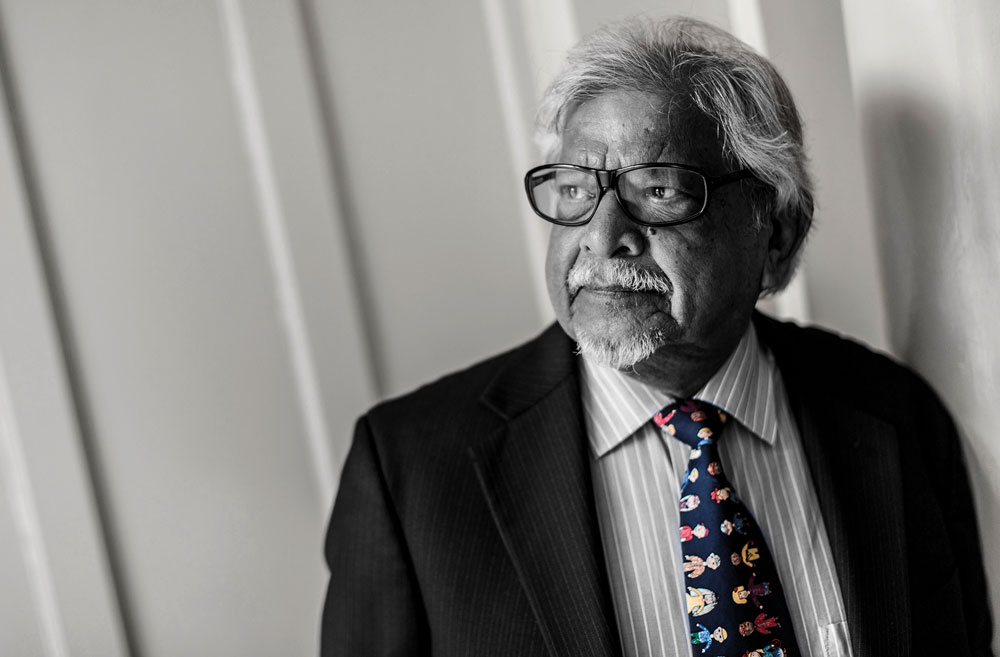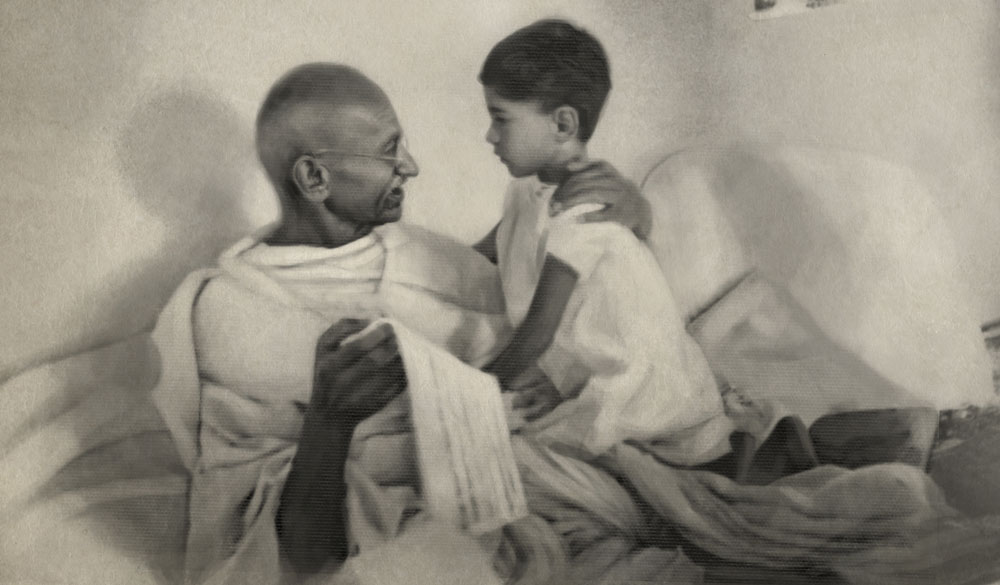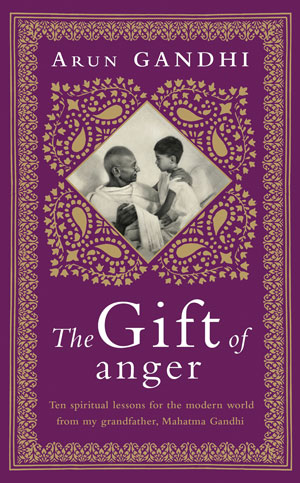Masterclass: How to channel anger for good

A BIT ABOUT ME
I was born in 1934 and grew up in South Africa at a time when it seemed everybody hated everybody else because of the colour of their skin. I suffered, and was filled with rage, so when I was 12 my parents sent me to live with my grandfather, Mahatma Gandhi, to learn from him. I’ve since founded a non-violence institute in my grandfather’s name, and give many talks trying to help people gain a better understanding of justice and conflict resolution.

Arun as a child with his grandfather, Mahatma Gandhi
EMPATHISE WITH OTHERS
My grandfather taught me anger is good. ‘It is an energy that compels us to define what is right and wrong,’ he told me. But violence is never the solution.
If someone angers us, we need to find out what caused that person to do what they did and what they, or we, could have done differently. Try to analyse the situation and come to the right conclusion.
He said anger is like electricity – powerful and useful if used intelligently, but deadly and destructive if abused. In the same way we channel electric energy and use it for good, we must learn to utilise anger in the same way.
EXERCISE YOUR THOUGHTS
We do physical exercise because we desire a strong body but assume the mind doesn’t need strengthening.
However, at any given moment the mind is filled with dozens of different thoughts and so is not in our control. Then, when an incident happens, we blow up, and often we regret it.
My grandfather taught me to do a mental exercise every day which helped me step back and see how each incident can be best resolved.
PICTURE THIS
Here’s a daily technique to strengthen your mind. Sit quietly in a room for a few minutes. Find something that gives you pleasure to look at and hold it in front of you.
Focus your mind on that object for one full minute. Then close your eyes and see how long you can keep that image in your mind’s eye.
The first time I tried this as a child, the moment I closed my eyes, the image vanished. But when I started doing it every day I found I could keep that image far longer in my mind. I was bringing my mind under my control.
WRITE IT DOWN
Start writing an anger journal. This is not a way of pouring your anger into it so every time you go back and read you’re reminded of the incident and get angry again.
Rather, you write down the incident with the intention of finding a solution and, in doing so, find a very different perspective to the whole thing. I did that for many years and it helped me considerably.
THE OUTCOME
By controlling our minds and learning to use our anger as a spark for change, we can resolve situations rather than let them spiral into hate and violence. Controlling our own anger can prevent fuelling anger in others, too. And with everything that’s going on in the world today, this lesson is more vital than ever.
THREE TIPS FOR AVOIDING CONFLICT
Speak up. Don’t be afraid to say when you’re unhappy about a situation. As my grandfather said: ‘A “no” uttered from the deepest conviction is better than a “yes” merely uttered to please, or worse, to avoid trouble.’
Choose your words carefully. Always think about what you say. Will your words hurt or help a situation? Once you find words that will do good, speak them loudly.
Say the truth. Because we have an ego, we sometimes feed it by telling lies – and get into more trouble. We need to administer our egos.
The Gift of Anger by Arun Gandhi is published by Michael Joseph…
This feature was first published in 2017…
Read more: Marianne Williamson on how to replace fear with love









